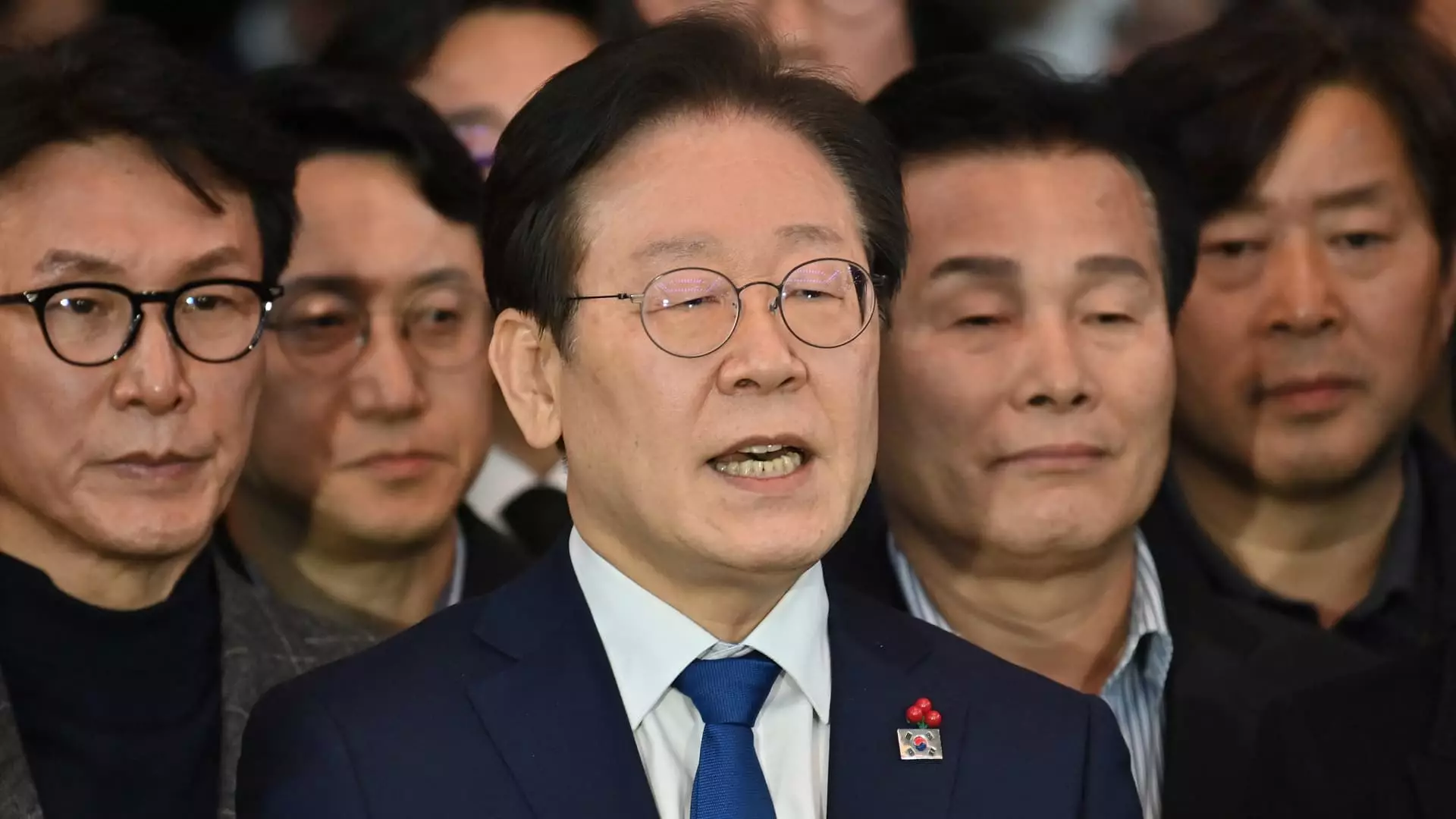The political landscape of South Korea is quaking under the weight of significant scrutiny, and at the forefront stands presidential contestant Lee Jae-myung, a figure poised to turn the tide not just for his party but for the nation’s economic relationship with the United States. Lee’s assertion that the stringent deadlines imposed on trade negotiations by the U.S. require reevaluation calls into question the framework upon which these economic interactions are built. In an era where nationalist sentiments often dictate international agreements, Lee’s push for a more inclusive and reciprocal approach brings fresh air into a charged political atmosphere.
When a leader emphasizes the failure of one-sided negotiations, it’s not merely rhetoric—it’s a call for a cooperative model where both parties can leverage their strengths instead of being subjected to a predatory dynamic. Framing diplomacy as a mechanism for mutual benefit rather than exploitation is a radical but necessary assertion. As Lee aptly puts it, “If one country benefits and the other country suffers unilaterally, that is not diplomacy; it is called plunder.” This statement resonates deeply within a global context, where trade and economic agreements often leave smaller nations vulnerable to the whims of more powerful ones.
Economic Stability Amid Political Turmoil
The backdrop of Lee’s candidacy is steeped in a dramatic political upheaval, the impeachment of Yoon Suk Yeol, whose short-lived presidency came to a close under allegations of extreme measures. This political instability has undeniably triggered an economic ripple effect, and Lee’s promise to introduce a robust economic stimulus package shows his understanding of the complexities involved. He talked about forming a task force dedicated to navigating this turbulent economic landscape—an indication of his commitment to immediate action.
In an economy like South Korea’s, which is heavily influenced by external forces and trade dependencies, a leader who proposes not just to react but to preemptively address economic challenges is refreshing. Vowing to chart a path toward recovery, Lee’s approach reflects an urgency that is often overlooked in political circles, where the repercussions of delayed action are at times indeterminate.
A Pragmatic Approach to North Korea and Defense
Lee does not shy away from the contentious issue of North Korea, bringing a pragmatic approach that starkly contrasts with Yoon’s aggressive posturing. The doctrine of military confrontation has historically yielded more tension than results, and Lee’s vision for diplomacy insists on a balance—an alliance that does not sacrifice dialogue and cooperation at the altar of military strength.
“Maintain strong defense capabilities but also pursue communication”—this encapsulates Lee’s dual approach to national security and regional stability. Such a philosophy acknowledges the complexity of the Korean Peninsula’s geopolitical environment while advocating for a common ground through dialogue. It highlights a necessity that has eluded past administrations: that a foundation of respect and understanding can often lead to more sustainable peace measures than outright confrontation.
The Winds of Change in Public Sentiment
In a tightly contested race, Lee appears to be resonating with the South Korean public who are weary of the entrenchment of polarizing political stances. As polls indicate a tightening race against conservative contender Kim Moon-soo, Lee’s ability to articulate a vision that prioritizes the working relationship with the U.S. while simultaneously advocating for economic and social stability seems to be paving the way for his potential success.
However, the road ahead remains fraught with challenges, not least due to the ingrained sentiments and fears stemming from Yoon’s term. To maintain this momentum, Lee must not only focus on policy particulars but also on overarching narratives—narratives that reject division, advocate for cooperation, and most importantly, embrace a future in which South Korea can assert its identity as a resilient and proactive ally.
With an unyielding call for empathy, diplomacy, and mutual respect, perhaps the emergence of a new political paradigm beckons. Lee Jae-myung is not merely running for office; he is championing a vision that redefines the relationship between domestic and international priorities. This may indeed set a revolutionary standard for how South Korea engages not just with the United States but with the entire world.


Leave a Reply